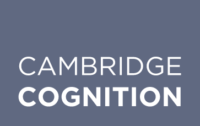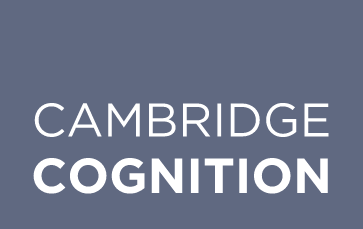
Alzheimer's disease
Why is cognitive assessment important in Alzheimer's?

Why it is important to do research in Alzheimer’s disease?
The early detection of Alzheimer’s disease, coupled with prompt intervention, is important for improving patient outcomes and support for carers. In a statistical modelling study, the maximum benefit from symptomatic treatment of Alzheimer’s disease in terms of economic savings and gain in quality adjusted life years was achieved when treatment was given as early as possible3. Cognitive tests may be able to pick up subtle changes in brain function caused by Alzheimer’s disease, before external symptoms start to show.
The search for pharmacotherapies capable of averting disease progression in prodromal dementia, rather than providing symptomatic relief later after disease develops, continues and represents a key unmet need.
What is Alzheimer’s disease?
Alzheimer’s disease is the most common type of dementia. It is characterised by progressive cognitive impairment, which impedes day-to-day function. In early (prodromal) stages of Alzheimer’s disease, there is typically subtle loss of memory abilities, but everyday function and quality of life is relatively intact. As the disease progresses memory is most affected, but over time, other abilities can deteriorate including planning, language, and learning capacities.
Around 50 million individuals are affected by Alzheimer’s disease worldwide1. Dementia is the seventh leading cause of death among all diseases and one of the major causes of disability and dependency among older people globally. About 60-70% of dementia cases are thought to be due to Alzheimer’s disease2.
Currently available licenced drug treatments for Alzheimer’s disease do not significantly slow the underlying progression of disease, but rather provide symptomatic relief to maximise comfort, dignity, and independence.
Cholinesterase inhibitors such as donepezil and rivastigmine represent first-line drug therapy for mild-moderate Alzheimer’s disease. These medications inhibit the brain’s breakdown of the neurotransmitter acetylcholine, helping to preserve memory and other cognitive functions.
People identified with possible prodromal Alzheimer’s disease or Mild Cognitive Impairment (MCI) are at increased risk of developing dementia. There are currently no licensed medications specifically for MCI. Rather, its detection allows for healthcare providers to monitor people more closely over time, but also allows individuals and their healthcare teams to work on risk reduction strategies.
What is ADHD?
Attention-Deficit Hyperactivity Disorder (ADHD), otherwise known as hyperkinetic disorder, is a condition that affects people’s behaviour. ADHD can cause restlessness, trouble concentrating and impulsive behaviour1. For example, children with ADHD may blurt out answers in the classroom, fidget and find it impossible to keep still and struggle to focus on what a person is saying.
ADHD is the most common psychiatric disorder of childhood, affecting at least 5% of children globally. Symptoms persist into adulthood in up to 60% of childhood cases2.
For a diagnosis of ADHD to be given, the symptoms must be functionally impairing and occur in at least two distinct settings, for example at home and at school.
Considerable research has examined the long-term consequences of ADHD, highlighting its global importance for society. In a systematic review of the data, untreated ADHD was associated with poorer long-term outcomes across all categories considered: these included academic performance, job performance and employment status, self-esteem, quality of life, and risk of driving accidents3.
ADHD is a treatable psychiatric disorder, with medium to large effect sizes in terms of symptomatic improvement, versus control conditions, over the short-medium term4.
ADHD is often misdiagnosed, and is frequently comorbid with other mental (and physical health) disorders. First-line treatment options for ADHD can include consideration of psychotherapy and/or medication, but these should always be offered as part of a comprehensive package of care. The most appropriate treatment options and sequencing of treatment options can vary considerably depending on factors such as the age of the individual, severity of disease, and patient/family preference.
Why it is important to do research in ADHD?
The core symptoms of attention deficit disorders are cognitive in nature (inattention, hyperactivity, and/or impulsivity). These cognitive deficits often reflect underlying brain circuitry dysfunction (including prefrontal regions) and of neurochemical transmission, including the dopamine and noradrenaline/norepinephrine pathways5-9. Our recommended test battery for attention deficit disorders assesses the cognitive domains most likely to be impaired, as well as those likely to be affected by interventions.
Recommended CANTAB test battery for Alzheimer's disease
For Alzheimer’s disease we recommend two options of test batteries, depending on whether you are looking at prodromal states or mild to moderate Alzheimer’s disease.
Endpoints measured

Motor skills
Executive function
Visual memory
Episodic memory
Information processing
Sustained attention

Key research for CANTAB® in Alzheimer’s disease
CANTAB® has been shown to be highly sensitive to cognitive dysfunction in Alzheimer’s disease, showing clinically meaningful outcomes associated with impaired day-to-day function.
Our Alzheimer’s test batteries identify baseline impairment in Alzheimer’s disease with large effect sizes4, our tests discriminate the cognitive profile of MCI from Alzheimer’s disease and depression5.6 and are highly sensitive to disease progression5.
The batteries tie in closely with current neurobiological models of Alzheimer’s disease, exhibiting sensitivity to under-activation of the hippocampus in MCI7. The tests also offer considerable advantage over traditional measures (ADAS-cog, MMSE) for predicting and discriminating stable from deteriorating forms of suspected dementia at an individual level8-10. Our Alzheimer’s testing batteries are clinically relevant as cognitive impairments in our tests correlate with everyday function and long-term outcomes in Alzheimer’s disease.


Pathology and functional impact of disease
Classical understanding of the underlying brain pathology in Alzheimer’s disease emphasises the laying down of beta-amyloid plaques outside of brain cells, coupled with the accumulation of tau proteins within brain cells. There is a concomitant loss of the neurotransmitter acetylcholine in the cortex.
These pathological processes begin long before the symptoms become evident, and before a formal diagnosis is possible. The diagnosis of Alzheimer’s disease is made based on a detailed clinical assessment and use of biomarkers, for example neuroimaging.
Early in this chain of pathogenesis of Alzheimer’s disease, there is typically selective impairment in episodic memory. Later on, cognitive deficits across other domains commonly develop, especially for other memory processes (semantic and working memory), executive planning, and attention. This progression and spread of cognitive dysfunction links closely with the progressive loss of everyday functioning observed in people with Alzheimer’s disease.
In people with prodromal Alzheimer’s disease or MCI, everyday functioning is either intact, or there are relatively subtle problems with complicated tasks. For example, an individual with MCI may need more time than before to deal with household bills or to prepare a shopping list; or make occasional errors in these chores that are out of character.
In moderate forms of Alzheimer’s disease, there are more global difficulties with life tasks, for example forgetting one’s home address, or needing help from others in choosing appropriate clothing for the season.
Further reading
You can find more papers about cognition and Alzheimer's in our bibliography.
Here are some other papers that might be of interest:
Albert M.S., et al (2011). The diagnosis of mild cognitive impairment due to Alzheimer's disease: recommendations from the National Institute on Aging-Alzheimer's Association workgroups on diagnostic guidelines for Alzheimer's disease. Alzheimers Dement.
Barnett J.H., et al (2014). Early intervention in Alzheimer's disease: a health economic study of the effects of diagnostic timing. BMC Neurol.
Blackwell A.D., et al (2004). Detecting dementia: novel neuropsychological markers of preclinical Alzheimer's disease. Dement Geriatr Cogn Disord.
Chamberlain S.R., et al (2011). Differential cognitive deterioration in dementia: a two year longitudinal study. J Alzheimers Dis.
Swainson R., et al (2001). Early detection and differential diagnosis of Alzheimer's disease and depression with neuropsychological tasks. Dement Geriatr Cogn Disord.
Fowler K.S., et al (2002). Paired associate performance in the early detection of DAT. J Int Neuropsychol Soc.
References
- https://www.alzheimers.net/alzheimers-statistics
- https://www.who.int/news-room/fact-sheets/detail/dementia
- Getsios D, Blume S, Ishak KJ, Maclaine G, Hernández L. An economic evaluation of early assessment for Alzheimer’s disease in the United Kingdom. Alzheimers Dement. 2012;8:22–30. doi: 10.1016/j.jalz.2010.07.001.
- Égerházi A, Berecz R, Bartók E, Degrell I. Automated Neuropsychological Test Battery (CANTAB) in mild cognitive impairment and in Alzheimer’s disease. Progress in Neuro-Psychopharmacology and Biological Psychiatry. 2007;31(3):746–751.
- Chamberlain et al., J Alz Dis, 2011. Chamberlain R., Wengenack T. M., Poduslo J. F., Garwood M., Jack C. R. (2011). Magnetic resonance imaging of amyloid plaques in transgenic mouse models of Alzheimer's disease. Curr. Med. Imaging Rev. 7, 3–7. 10.2174/157340511794653522
- Swainson R, Hodges JR, Galton CJ, Semple J, Michael A, Dunn BD, et al. Early detection and differential diagnosis of Alzheimer’s disease and depression with neuropsychological tasks. Dement Geriatr Cogn Dis 2001; 12: 265-80
- Fowler, K. S., Saling, M. M., Conway, E. L., et al (1997) Computerized neuropsychological tests in the early detection of dementia: prospective findings. Journal of the International Neuropsychological Society, 3, 139–146.
- KS, Saling MM, Conway EL, Semple JM, Louis WJ. Paired associate performance in the early detection of DAT. J Int Neuropsychol Soc 2002; 8: 58–71.
- De Jager C, Blackwell A, Budge M, Sahakian B. Predicting cognitive decline in healthy adults. Am J Geriatr Psychiatry. 2005;13:735–740
- Blackwell AD, Sahakian BJ, Vesey R, Semple JM, Robbins TW, Hodges JR. Detecting dementia: novel neuropsychological markers of preclinical Alzheimer's disease. Dement Geriatr Cogn Disord 2004; 17: 42–48.

